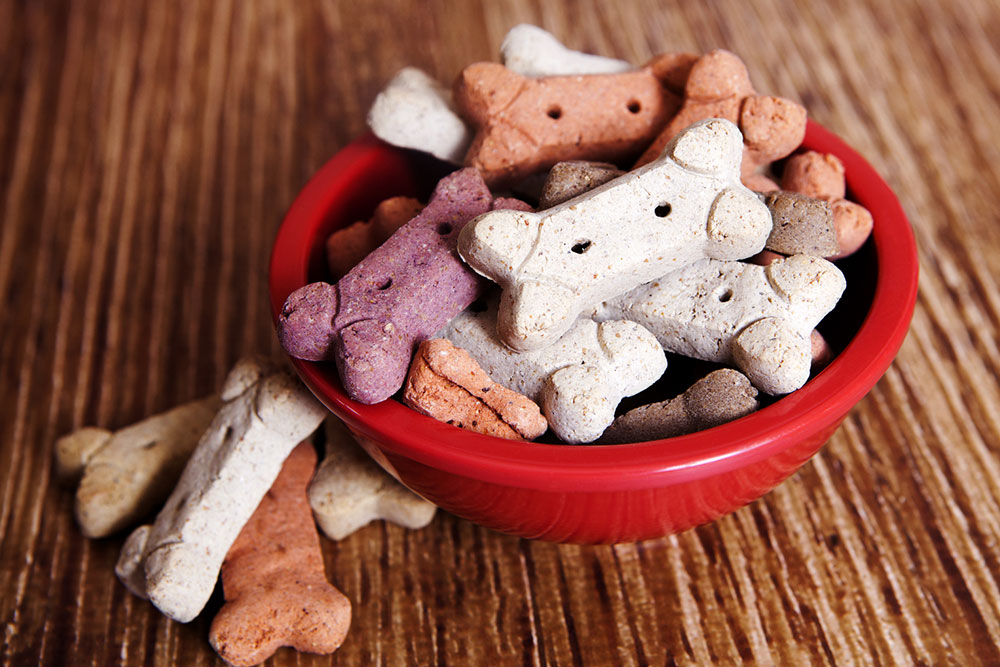Essential Guide to Selecting Nutritious and Healthy Dog Food for Your Pet
Learn expert tips on choosing high-quality dog food that ensures your pet’s health and well-being. This guide covers ingredient selection, necessary certifications, and dietary considerations tailored to your dog’s age and breed. Make informed decisions for a healthier, happier pet with comprehensive advice on nutritious dog foods.

Essential Guide to Selecting Nutritious and Healthy Dog Food for Your Pet
As a responsible dog owner, one of your top priorities is ensuring that your canine companion receives a balanced, nutritious diet that promotes overall health, vitality, and longevity. With the vast array of dog food brands and formulations available today, making an informed choice can often feel overwhelming. Many food labels boast about being "organic," "natural," or "grain-free," but how do you truly know what benefits your dog the most? Scrutinizing ingredient lists and understanding what constitutes healthy dog food can considerably improve your pet’s quality of life. This comprehensive guide aims to provide you with practical, evidence-based tips for selecting high-quality dog food that meets your pet's unique nutritional needs.
Prioritize High-Quality Animal Proteins
Proteins are fundamental to your dog’s development and overall health. High-grade animal proteins support muscle growth, maintenance, and repair, as well as promote healthy skin and a shiny coat. When shopping for dog food, examine the ingredient list for specific meat sources like beef, chicken, fish, lamb, rabbit, or venison. These ingredients are rich in essential amino acids that your dog cannot produce on their own. Some products feature ingredients like egg protein, which is an excellent source of complete protein, but always prefer labels that specify the type of meat used instead of vague terms like “meat unspecified” or “animal by-products.” Transparency is a good indicator of quality in pet foods.
Integrate Vegetables for a Nutritional Boost
Vegetables are crucial for bolstering your dog’s immune system and promoting overall health. They provide vital vitamins, minerals, antioxidants, and fiber. Opt for dog foods that include vegetables such as sweet potatoes, green beans, peas, spinach, broccoli, asparagus, and zucchini. These ingredients support digestion, boost energy levels, and contribute to a healthy coat. Additionally, incorporating fruits like blueberries, apples, watermelons, pineapples, and raspberries can supply antioxidants that fight free radicals, supporting long-term health and vitality.
Grain-Free or Not? Consider Your Dog’s Specific Needs
While grains are a common ingredient in many dog foods and are not inherently harmful, some dogs develop allergies or sensitivities to specific grains, notably gluten. Symptoms such as excessive paw licking, vomiting, diarrhea, itching, or ear infections can indicate grain allergies. If your dog exhibits these signs, consult your veterinarian to determine whether a grain-free diet or a diet with specific protein restrictions might be beneficial. Remember, grain-free options are not necessarily superior for all dogs; assessing your pet’s individual health status is key to making the right choice.
Read Beyond the Ingredient List: The Importance of Certification
Always verify that the dog food is labeled as complete and balanced by a reputable organization such as the Association of American Feed Control Officials (AAFCO). This certification assures that the product adheres to established nutritional standards suitable for your dog’s life stage—puppy, adult, or senior. Feeding your dog a product that meets these standards helps prevent nutritional deficiencies or excesses that could compromise health over time.
Identify and Avoid Harmful Ingredients
Avoid artificial preservatives such as BHA, BHT, ethoxyquin, and propylene glycol, which studies have linked to potential health risks including allergies and organ toxicity. Instead, select foods that preserve freshness naturally using antioxidants like vitamins C and E, or natural extracts such as rosemary. Also, be cautious of fillers, including corn by-products and cereals, which contribute little nutritional value and can sometimes trigger allergies. Artificial dyes and colorants should be avoided as well, as they can cause allergic reactions or hyperactivity in some dogs.
Minimize Meat By-Products and Focus on Whole Meats
Meat by-products—such as organs, blood, and bones—are commonly included in many pet foods, but they generally have lower nutritional value compared to fresh, whole meats. While some pet owners appreciate their inclusion for variety, over-reliance on by-products can reduce the overall nutritional quality of the diet. Moreover, by-products are often unsuitable for human consumption and may contain lower-grade materials. For optimum health benefits, prioritize foods that list whole meat sources and limit the use of by-products, especially in larger quantities.
Consider Your Dog’s Age, Breed, and Lifestyle
Dog nutritional needs vary based on age, activity level, and breed size. Inactive adult dogs require fewer calories and lower fat content, while highly active or working dogs need increased energy intake. Puppies, pregnant, and nursing dogs have specialized nutritional requirements, including higher levels of certain vitamins and minerals. Older dogs benefit from diets rich in fiber and omega-3 fatty acids to support joint health and cognitive function. Reputable brands like Blue Buffalo, Nature’s Variety, Darwin’s Natural Pet, ORIJEN, and Dr. Harvey’s offer a wide range of formulations tailored to different life stages and breed sizes. Consulting with your veterinarian can help identify the best diet plan for your pet’s unique needs.
In conclusion, selecting the right dog food involves understanding ingredient quality, nutritional certification, and specific dietary needs of your pet. By prioritizing high-quality proteins, incorporating vegetables and fruits, avoiding harmful additives, and tailoring the diet to your dog’s life stage, you can significantly enhance your dog’s health and happiness. Staying informed and vigilant about ingredient labels and certifications ensures that your furry friend gets the best possible nutrition, promoting a longer, healthier, and more vibrant life.





